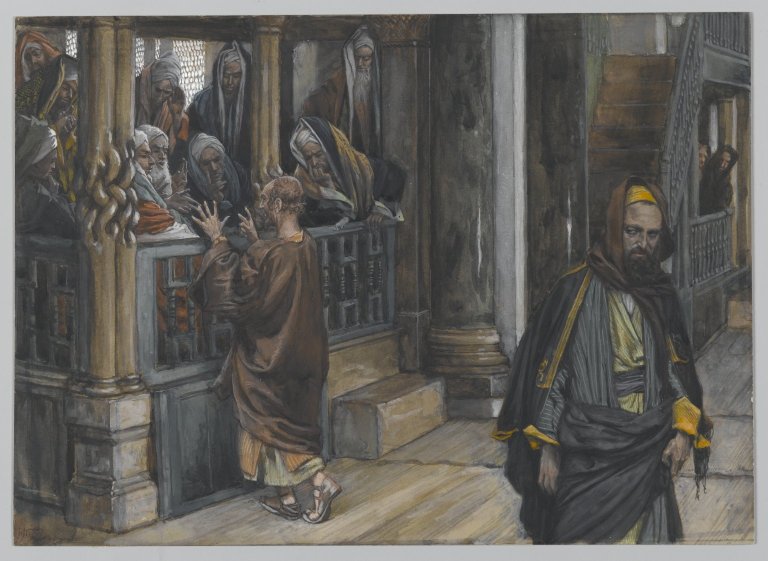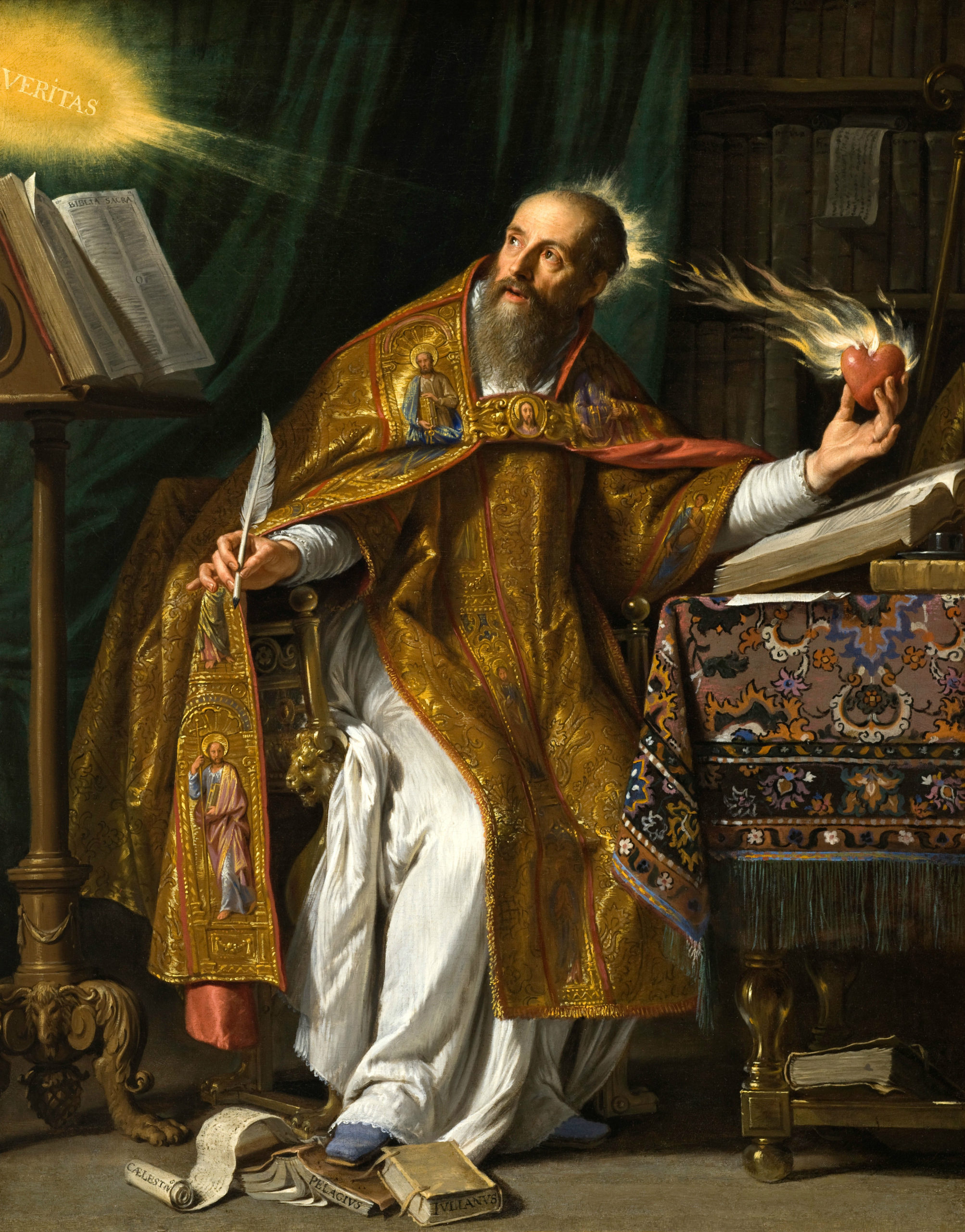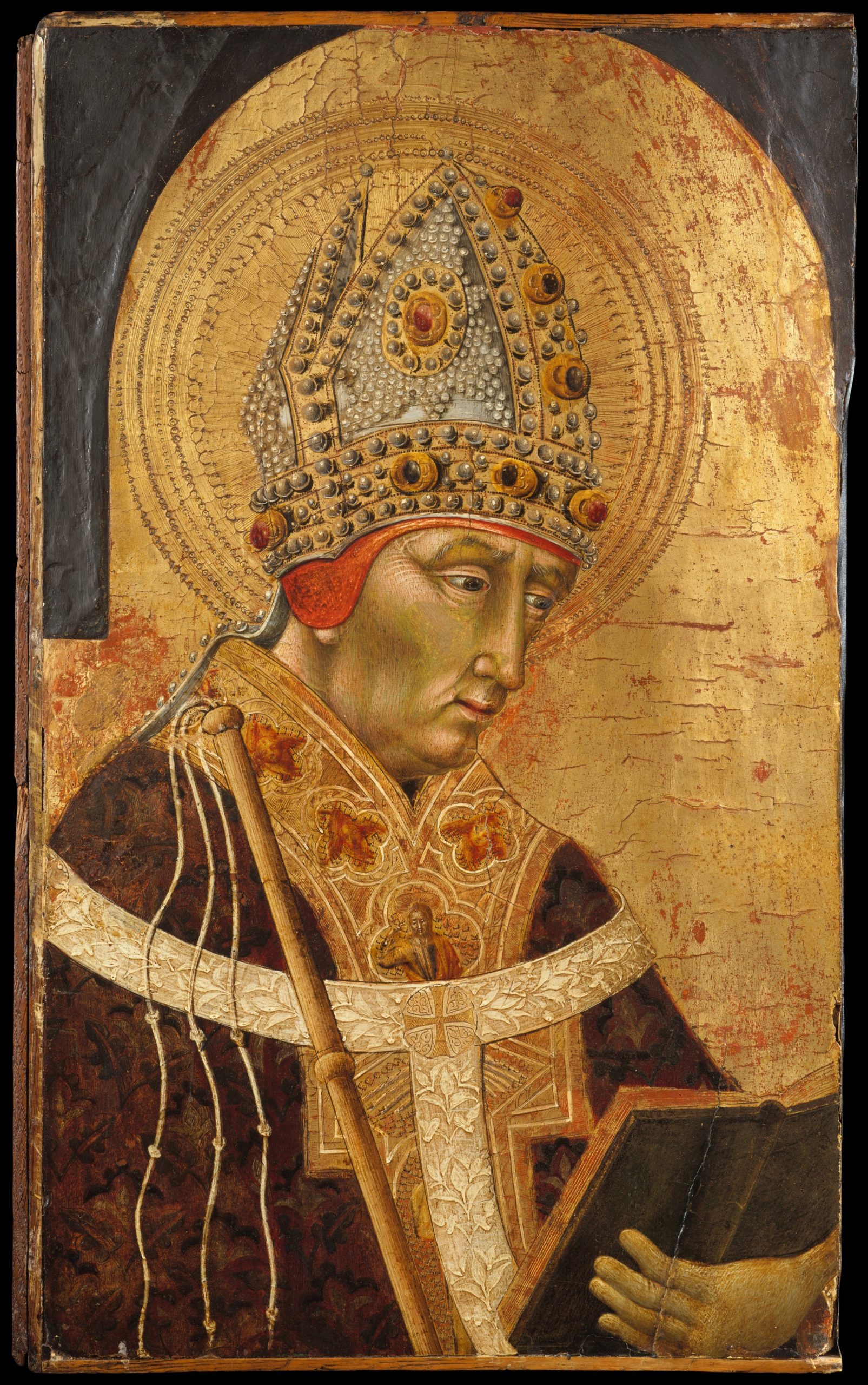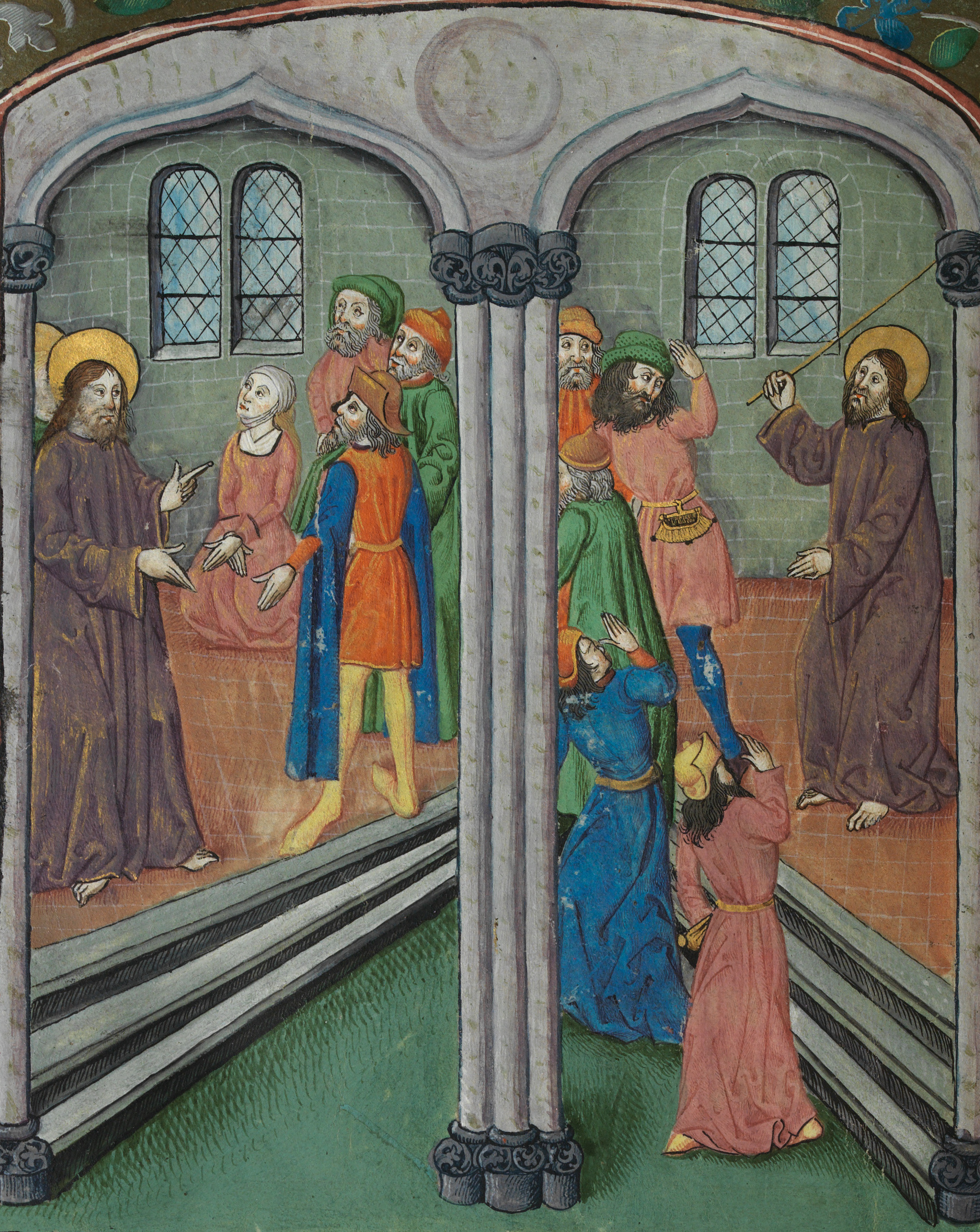
The Gospel reading for Tuesday of Holy Week is John 13:21–33, 36–38 (open the daily reading in the Verbum web app). How do the Fathers of the Church read the Gospel?
It is no light question, brethren, that meets us in the Gospel of the blessed John, when he says: “When Jesus had thus said, He was troubled in spirit, and testified, and said, Verily, verily, I say unto you, that one of you shall betray me.” Was it for this reason that Jesus was troubled, not in flesh, but in spirit, that He was now about to say, “One of you shall betray me”? Did this occur then for the first time to His mind, or was it at that moment suddenly revealed to Him for the first time, and so troubled Him by the startling novelty of so great a calamity? Was it not a little before that He was using these words, “He that eateth bread with me will lift up his heel against me”? And had He not also, previously to that, said, “And ye are clean, but not all”? where the evangelist added, “For He knew who should betray Him:” to whom also on a still earlier occasion He had pointed in the words, “Have not I chosen you twelve, and one of you is a devil?” Why is it, then, that He “was now troubled in spirit,” when “He testified, and said, Verily, verily, I say unto you, that one of you shall betray me”? Was it because now He had so to mark him out, that he should no longer remain concealed among the rest, but be separated from the others, that therefore “He was troubled in spirit”? Or was it because now the traitor himself was on the eve of departing to bring those Jews to whom he was to betray the Lord, that He was troubled by the imminency of His passion, the closeness of the danger, and the swooping hand of the traitor, whose resolution was foreknown? For some such cause it certainly was that Jesus “was troubled in spirit,” as when He said, “Now is my soul troubled; and what shall I say? Father, save me from this hour; but for this cause came I unto this hour.” And accordingly, just as then His soul was troubled as the hour of His passion approached; so now also, as Judas was on the point of going and coming, and the atrocious villainy of the traitor neared its accomplishment, “He was troubled in spirit.”
St. Augustine – Homilies on the Gospel of John
His being troubled in spirit, was the human part, suffering under the excess of the spiritual. For if every Saint lives, acts, and suffers in the spirit, how much more is this true of Jesus, the Rewarder of Saints.
Origen
Next, dearly beloved, as John the Evangelist says, when the Lord “handed over bread that had been dipped” to his betrayer as a clear sign, the devil seized on Judas completely. He now possessed, in the act of his wickedness, the one whom before he had shackled with evil thoughts. While [Judas] reclined with the others at table only with respect to his body, in his mind he was arming the hatred of priests, the lies of witnesses, and the rage of ignorant people. When the Lord saw what infamy Judas was intent upon, he said, “What you are doing, do quickly.” This was the word not of one commanding, but allowing; not of one in fear, but of one prepared. The Lord had power over all time but showed himself as allowing no delay for the traitor and as carrying out his Father’s will for the redemption of the world, so that he neither forced nor feared the crime prepared by his persecutors.
Pope St. Leo the Great
Next, since He had delivered these injunctions to them because they were about to traverse the whole world, upon reflecting that the traitor would be deprived of both these advantages and would enjoy the benefit of neither of them—neither of patient endurance in his trials nor of the services of persons extending him hospitality—Christ was once more troubled. It was to reveal this, and to make it clear that He was troubled on account of the traitor, that the Evangelist added: ‘When Jesus had said these things, he was troubled in spirit and said solemnly, “One of you will betray me.” ’ Once again He struck them all with terror by not mentioning the traitor by name. Moreover, some were in doubt, even though they were conscious of no wrong-doing, for they considered Christ’s statement more to be trusted than their own reason. And that is why they looked at one another. Therefore, by limiting the entire matter of His betrayal to one man He reduced their fear, but by adding ‘One of you’ He disturbed them all.
St. John Chrysostom – Commentary on Saint John the Apostle and Evangelist: Homilies 48–88





